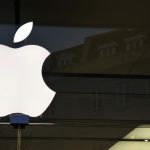SkyDrive user? You're about to lose two-thirds of your storage space

Microsoft on Monday launched a new version of SkyDrive, bringing the cloud-file sharing service to the desktop. This move did not come without a cost -- new users will have far less space, and current users only have a "limited time" to keep the generous storage the Redmond, Wash. company provides. But more on that a bit later.
The enhancements address problems with SkyDrive's browser-based interface which irk critics and customers. With desktop integration, cloud storage becomes a drag-and drop-process.
Adobe Creative Suite 6 takes to the cloud

Adobe took the wraps off Creative Suite 6 on Monday, introducing the largest release to date of the content-creation platform. CS6 now includes up to 12 programs and two companion applications, Bridge and Encore, and is available in four editions: Design Standard, Design and Web Premium, Production Premium, and Master Collection.
The CS6 beta is one of the most successful in the company's history, with one million downloads over the past month of availability alone, a record for Adobe. The move was slightly unusual considering the company typically does not offer large-scale betas of its products.
RIAA's Waterloo? Anonymous Looks to set streaming music free

Streaming music content is too restrictive, believes hacktivists Anonymous. Six members of the group have released Anontune, a web-based application that aims to aggregate streaming music online and place it in a central location. AnonTune currently accesses the catalogs of YouTube and SoundCloud, although the developers plan to add content from other services including Yahoo Music, Myspace Music, Bandcamp and others in the future.
True to the groups name, users will be able to listen to tracks anonymously, and Anonymous itself will not store the tracks. Instead it depends on the catalogs of the services it aggregates, thus leaving the sticky copyright issues to those sites. Recording Industry Association of America's Waterloo, indeed. The next one, if Napster wasn't enough a computing generation ago.
AppSense's DataNow answers demand for corporate cloud file sharing

Aiming to become the Dropbox of the enterprise, New York City-based AppSense has introduced DataNow, a cloud-based service aimed at giving companies a method to securely share documents across multiple platforms. The company says that its solution lessens the risk of the loss of sensitive information.
File sharing services like Dropbox have already been in the news for just that. Like Facebook and Draw Something, Dropbox has been found to store access tokens in plain text. Last June, a flaw in the software allowed anybody to log in to any account with any password. In the corporate world, such a breach is possibly devastating.
Nokia's short-term pain is the result of long-term problems

Point. It's always fun to point the blame at someone, and everyone loves to blame CEO Stephen Elop for Nokia's woes. As the Finnish phone manufacturer began to burn, Elop came aboard and made a deal with his former employer, Microsoft, to adopt the Windows Phone platform. Pundits thought he was insane, and have criticized him repeatedly for the move.
These criticisms grow louder as Nokia reports a $1.3 billion euro ($1.76 billion) loss in the first quarter of 2012. According to the financial statements, the company burned through 700 million euros in cash during the same quarter, and has a little under five billion euros in cash left. The company may face bankruptcy in two years.
Microsoft refreshes Windows Intune, debuts cross-platform mobile device management

Tuesday at the Microsoft Management Summit in Las Vegas the topic was the private cloud and the public availability of System Center 2012. Microsoft switched gears on Wednesday and revealed details on the next version of Windows Intune, its public cloud offering.
Wednesday's Intune release is a beta version limited to 10 PCs. It will support all versions of Windows after XP Service Pack 3, but is currently incompatible with Windows 8, and "will not support Windows 8 until after it is generally available" according to the company.
Microsoft releases System Center 2012 to manage private clouds

Microsoft is pushing the cloud heavily at this years Microsoft Management Summit in Las Vegas, and its private cloud offerings are taking center stage. The company announced the general availability of System Center 2012, its private cloud management platform.
Private cloud deployments are exactly what the name entails -- for consumption internally -- and can be hosted either internally or by a third-party provider. System Center's public cloud equivalent is Windows Intune, which launched last March.
Metro apps on Windows 7 is a bad, bad idea

As we move closer to the launch of Windows 8 -- and the sea change that the Metro user interface brings to the platform -- there's an ever increasing drumbeat of both skepticism, concern, and apprehension depending on who you talk to.
End users are skeptical of Metro because they do not see its value. The interface completely changes how we interact with Windows, and in some cases will confuse us. I point you to this video of tech pundit Chris Pirillo's father attempting to use Windows 8 for the first time without instruction as an example. Microsoft may have unintentionally added an extra layer of complexity in an effort to simplify the OS.
Apple defends ebook price-fixing by calling Amazon a monopoly

Apple shot back at critics and the Justice Department late Thursday, denying claims that it colluded with publishers to keep the price of ebooks artificially high. Even more interesting? The Cupertino, Calif. company took a veiled shot at Amazon, saying its actions were necessary to break up the retailer's monopolistic grip on the industry.
These claims are interesting considering the same argument can be made against many of Apple's own key businesses. The Cupertino, Calif. company controls 70 percent of media downloads according to Nielsen, while Gartner says Apple's iPad holds 61 percent of the tablet market. The App Store makes a dollar for every 23 cents generated by Google Play, according to mobile advertising firm Flurry. By what measure is monopoly then?
Boeing phone to take flight with Android later this year

A company more known for its work in the aerospace industry is now Android's newest partner. Boeing this week announced plans to release a smartphone aimed at those requiring super-secure communications, yet the convenience of a widely used mobile operating system. Calling it the "Boeing phone", the device is slated to launch by the end of the year.
What business a company like Boeing has in hawking smartphones is unclear, but it has the market. Most of Boeing's current clients are in sectors where confidentiality and security is at a premium. Similar devices cost $15,000 to $20,000, but the Chicago based company plans to come in at a price point below that. Not something you or I could afford, mind you, but definitely more reasonable.
Amazon out-searches Google

Amazon set its sights on Google Thursday by introducing CloudSearch, a feature that allows customers of its Amazon Web Services offering to implement search capabilities to their websites. The technology behind CloudSearch is the same that Amazon uses on its retail site.
Access is billed based on the number of running search instances, anywhere from 12 cents to 98 cents per hour, with a 98 cent per gigabyte charge for the storage of search data. Running continuously, the search functionality could cost as little as $90 per month, and in some cases a cheaper alternative to Google's Site Search offering.
With the states suing over ebook price fixing, Apple needs to surrender

Attorneys General in 16 states filed suit against Apple and three publishing companies Wednesday, following a similar suit filed this morning by the US Justice Department. Unlike the federal suit, the states action also looks for monetary compensation in addition to the end of the collusive agreements between Apple and the publishers.
Connecticut and Texas lead the action, and are joined by Attorneys General in Alaska, Arizona, Colorado, Illinois, Iowa, Maryland, Missouri, Ohio, Pennsylvania, South Dakota, Tennessee, Vermont and West Virginia and the Commonwealth of Puerto Rico.
Is your Lumia 900 Windows Phone defective? Nokia has a remedy

Late today, Nokia confirmed the Lumia 900 suffers from an Internet connectivity problem, confirming reports first seen on its own message boards earlier this week. The company's US arm blames a software glitch for the problem. What is stunning, however, is the company's mea culpa: it makes Apple's response to "Antennagate" look stingy in retrospect.
"Software update coming soon to Nokia Lumia 900 addressing memory management", a tweet from Nokia US reads. "Customers receive automatic $100 credit". The update is due April 16, with the $100 credit valid through April 21. Affected users will be able to switch their device out for no charge instead if they prefer, and any new customer will get the device for free, since it retails in store for $99.
HP takes on Amazon, launches public cloud

In a move aimed at unseating Amazon's dominance in the space, HP on Tuesday launched a cloud service known as HP Converged Cloud that allows companies to take advantage of the company's expansive data centers. Converged Cloud is very much like Amazon Web Services, which is by far the largest provider of public cloud access.
HP will offer on-demand instances and virtual machines, and users will pay for the resources they use starting May 10. In addition, two Infrastructure-as-a-Service offerings will launch: one a storage service that assists in moving data from one instance to another, and the other a relational database tool for MySQL.
Microsoft all but buys Netscape with AOL patent acqusition

It's truly the final curtain call for Netscape. A portion the company's technologies are part of a massive $1 billion patent sale between AOL and Microsoft, announced Monday morning. Microsoft was the top bidder in an auction to sell off non-essential technologies that include about 800 patents.
Microsoft is also acquiring a subsidiary of AOL. While AOL did not specify the subsidiary by name, sources tell All Things Digital that it is Netscape. AOL still retains the right to the brand and related businesses, but all the technologies behind it are now owned by the Redmond, Wash. company.
Ed's Bio
Ed Oswald is a freelance journalist from the Reading, PA area. Although he has written across a variety of subjects, Ed’s passion and focus has been on technology and gadgets. His work regularly appears on tech news sites BetaNews, PCWorld, and Technologizer, and has been syndicated to eWeek, Time’s Techland blog, VentureBeat and the New York Times.
Ethics StatementBetaNews, your source for breaking tech news, reviews, and in-depth reporting since 1998.
Regional iGaming Content
© 1998-2025 BetaNews, Inc. All Rights Reserved. About Us - Privacy Policy - Cookie Policy - Sitemap.
